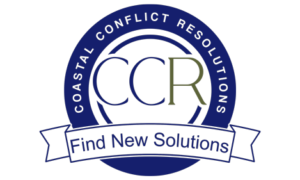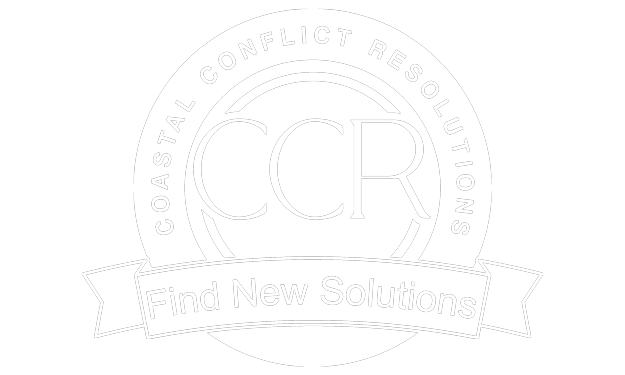Resolving Workplace Conflicts: Effective Ways for a Positive Work Environment Through Conflict Resolution
In any workplace, conflicts are bound to occur. Differences in personalities, work styles, goals, and communication methods can lead to misunderstandings and disagreements. However, conflicts do not have to be detrimental to an organization. When handled properly, conflict resolution can lead to growth, improved relationships, and a more positive work environment. At Coastal Conflict Mediation in Myrtle Beach, we specialize in resolving workplace conflicts through effective mediation techniques. This blog will explore strategies for resolving workplace conflicts and how these methods can foster a positive work environment. We will also discuss the crucial role of mediators in workplace conflict resolution.
 Understanding Workplace Conflicts
Understanding Workplace Conflicts
Workplace conflicts can arise from various sources, each with the potential to disrupt team harmony and productivity. Common causes of workplace conflicts include:
- Communication Breakdown: Misunderstandings, lack of communication, or poor communication can lead to conflicts. Clear and open communication is essential for preventing and resolving misunderstandings.
- Personality Clashes: Differences in personality traits and working styles can cause friction between employees. Recognizing and respecting these differences is key to mitigating conflicts.
- Role Ambiguity: Unclear job roles and responsibilities can lead to confusion and disputes over duties. Clearly defined roles and expectations help prevent such conflicts.
- Competition for Resources: Limited resources, whether they are time, money, or materials, can lead to conflicts as employees compete for what they need to complete their tasks.
- Value and Goal Differences: Conflicts can arise when employees have different values, goals, or priorities. Aligning team goals with organizational objectives can help minimize these conflicts.
- Perceived Inequities: Feelings of unfair treatment or inequity, whether in terms of workload, recognition, or compensation, can lead to dissatisfaction and conflict.
Effective Ways to Resolve Workplace Conflicts
Resolving conflicts in the workplace requires a strategic approach that promotes understanding, collaboration, and mutual respect. Here are some effective strategies for conflict resolution:
1. Encourage Open Communication
Fostering an environment where employees feel comfortable expressing their thoughts and concerns is crucial. Encourage open communication through regular team meetings, one-on-one discussions, and feedback sessions. Active listening and empathetic responses can help employees feel heard and valued.
2. Promote a Culture of Respect
Creating a workplace culture that emphasizes respect and inclusivity is essential for preventing and resolving conflicts. Encourage employees to respect each other’s differences and to approach conflicts with a collaborative mindset. Training programs on diversity, inclusion, and conflict resolution can reinforce these values.
3. Clarify Roles and Responsibilities
Clearly defining roles, responsibilities, and expectations can prevent many conflicts. Ensure that employees understand their job descriptions and how their roles contribute to the organization’s goals. Regularly review and update job descriptions as needed.
4. Implement Conflict Resolution Training
Providing conflict resolution training to employees can equip them with the skills needed to manage and resolve conflicts effectively. Training programs should cover communication skills, negotiation techniques, and problem-solving strategies.
5. Address Conflicts Early
Addressing conflicts promptly can prevent them from escalating. Encourage employees to bring issues to their supervisors or HR department as soon as they arise. Early intervention can help identify the root causes of conflicts and resolve them before they become more significant problems.
6. Use Mediation Services
When conflicts cannot be resolved internally, mediation services can be a valuable resource. Mediators provide a neutral and structured environment for resolving disputes. They facilitate communication, help parties identify common interests, and guide them toward mutually acceptable solutions.
The Role of Mediator in Workplace Conflict
Mediators play a critical role in resolving workplace conflicts. They bring expertise, neutrality, and a structured process to help parties navigate their disputes. At Coastal Conflict Mediation in Myrtle Beach, our mediators are skilled in handling workplace conflicts and guiding employees toward resolution.
1. Neutral Facilitator
A mediator serves as a neutral facilitator who does not take sides or impose solutions. This impartiality helps create a safe space where employees feel comfortable expressing their concerns. The mediator’s goal is to ensure that all parties have an equal opportunity to participate and be heard.
2. Promoting Open Communication
Mediators encourage open and honest communication between conflicting parties. They ask probing questions, listen actively, and ensure that each party understands the other’s perspective. This process helps clarify misunderstandings and promotes empathy.
3. Identifying Underlying Issues
Conflicts often have underlying issues that are not immediately apparent. Mediators help identify these root causes by exploring the interests, needs, and concerns of each party. Understanding the underlying issues is crucial for developing effective and lasting solutions.
4. Facilitating Collaborative Problem-Solving
Mediators guide parties through a collaborative problem-solving process. They help generate and evaluate potential solutions, focusing on interests rather than positions. This approach encourages creativity and cooperation, leading to mutually beneficial outcomes.
5. Drafting Agreements
Once a resolution is reached, mediators assist in drafting a clear and comprehensive agreement. This agreement outlines the terms of the resolution and the commitments of each party. Mediators ensure that the agreement is practical and feasible, promoting accountability and follow-through.
6. Providing Follow-Up Support
Mediation does not end with the agreement. Mediators may provide follow-up support to ensure that the terms of the agreement are being implemented effectively. They can also address any new issues that arise, helping to maintain a positive work environment.
Contact Coastal Conflict Mediation in Myrtle Beach
If your organization is facing workplace conflicts, Coastal Conflict Mediation in Myrtle Beach is here to help. Our professional mediators are skilled in facilitating discussions and guiding parties toward mutually acceptable resolutions. We are dedicated to helping you create a positive and productive work environment through effective conflict resolution. Call us at (843) 273-0029 for mediation inquiries.




